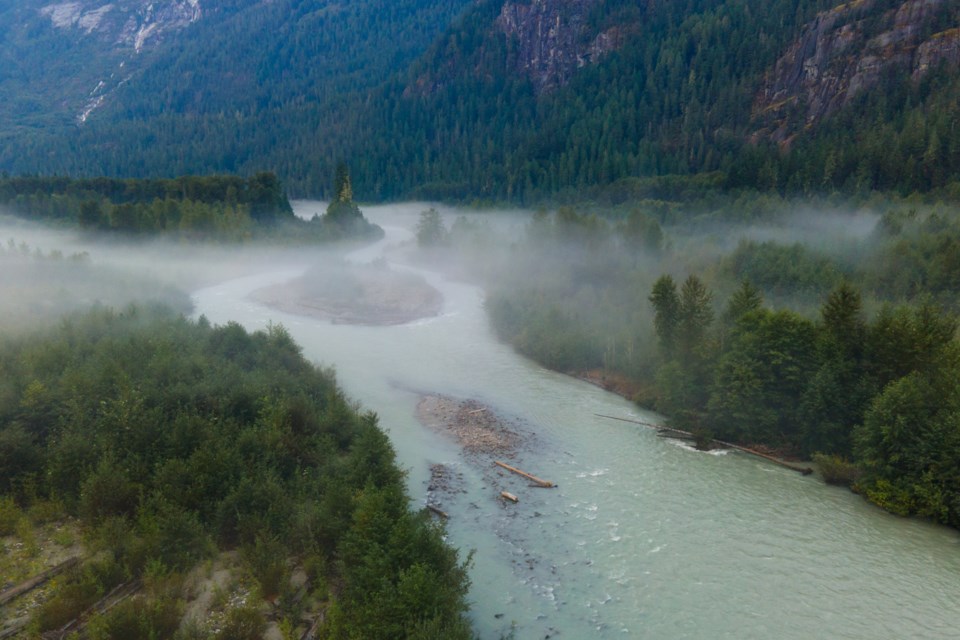The professional photographer creates stunning underwater images of salmon that make viewers feel like they are swimming alongside the fish.
He began capturing these pictures in the �鶹�����Valley in 2017.
He will walk the length of the river looking for unique images to jump in front of his lens, he said.
He also works closely with the , and they let him know if they see something special in the water.
He doesn't have any clients paying for the shots in the valley; it is just a personal passion project, he said.
"I am a firm believer that if people don't know about the places, there is no way they are going to care," he said. "The only way to preserve a place is to go there and care."
He stressed that it is important to know about fishing closures when people head to local rivers.
"Most of the fish you are going to see in my pictures, those places are closed to fishing, but they are absolutely open for people to go there and watch them."
Anecdotally, he has seen many more pinks returning this year, he said.
"I think it is really unique. Salmon are really struggling everywhere — and it is still far from historical numbers — but it is really nice to see such a big river with a healthy salmon population and so close to Vancouver and Squamish."
His favourite fish is the pink salmon because they come in bigger numbers.
"Chinook are amazing, but it is really rare that you see a big school, like 1,000 fish together — sometimes you do, but here in the mainland, it is pretty rare nowadays. But pinks, it is not hard to see a 1,000 fish school and that is really, really cool to watch."
Lessa, who is originally from Brazil, started in photography in 2008.
"I was always attracted to having a camera because that was the only way to prove things," he said. "I liked to go fishing when I was young, so if I catch a fish, the only way to say hey, 'This is the fish,' is to have a camera."
But as a young man, he did envision becoming a photographer. Instead, he became a biologist.
"But in the beginning of my studies, I switched to commercial photography," he recalled.
He pursued that career for a few years, but felt it was not as meaningful as he wanted his work to be.
"When I put my biology degree with my photography, I really found myself," he said of turning his lens on marine life.
He never looked back.
In 2019, he published the book of images, , and last year he published
"Basically, people have fish in their backyards," he said, explaining the theme of both works.
"It is not just about the �鶹�����River or the �鶹�����Valley, right now, if there is water, very likely there will be fish, so I think that is very special.," he said.
He said while shooting marine life he always tries to be respectful of the fish, using gear that is the least intrusive as possible and keeping a distance when necessary.
"With salmon, when they are spawning is the most important part of their life cycle," he said.
He takes split shots where the viewer sees above and below the water and these help folks put the fish into context, he said.
"This is the place, here's the fish — it really helps you situate what we are talking about. I really like them," he said.
Find out more about Lessa .




